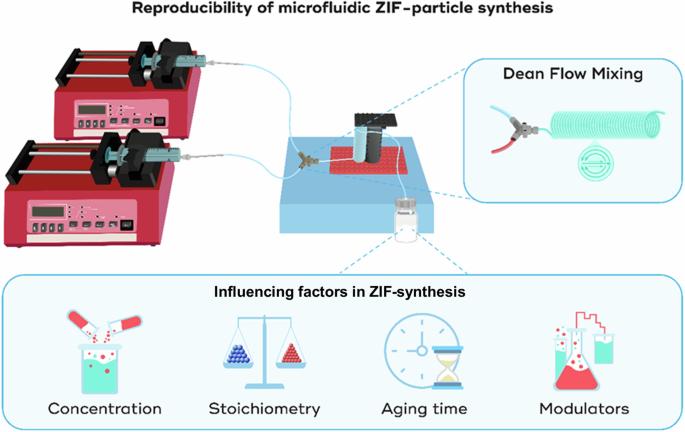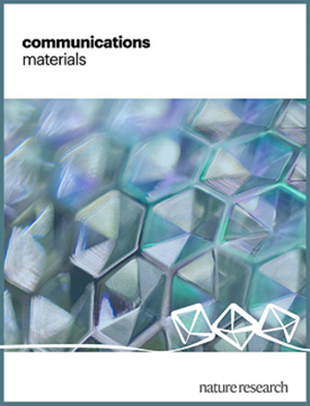Identifying synthetic variables influencing the reproducible microfluidic synthesis of ZIF nano- and micro-particles
IF 7.5
Q1 MATERIALS SCIENCE, MULTIDISCIPLINARY
引用次数: 0
Abstract
The reproducible synthesis of nano- and -micro particles is a critical step in multiple synthetic and industrial processes. Microfluidic synthesis offers numerous advantages for development of precise, reliable, and industrially useful synthesis protocols. However, the influence of different synthetic variables on reproducibility in microfluidic synthesis is underexplored. In this work, we systematically study the influence of key synthetic parameters on the microfluidic synthesis of four Zeolitic Imidazolate Frameworks (ZIFs): ZIF-7, ZIF-8, ZIF-9, and ZIF-67. Utilizing a coiled tube microfluidic setup, we explore the influence of key synthetic parameters such as reagent concentration, stoichiometry, aging time, and nine modulators (pH-altering agents, surfactants, and polar polymers). Most importantly, we evaluate the impact of these variables in combination with the role of mixing, using the Dean flow model. Lastly, we focus on the reproducibility problems that a coiled reactor presents at specific flowrates and how these problems can be recognized and avoided. Overall, the insights collected from this work inform the design of synthetic protocols and enhance material reproducibility and control in microfluidic nano- and micro-particle synthesis. Microfluidic synthesis is an important protocol in multiple synthetic and industrial processes. Here, the influence of key synthetic parameters on the microfluidic synthesis of Zeolitic Imidazolate Frameworks is evaluated, with recommendations given for reproducible synthesis.

确定影响 ZIF 纳米和微颗粒可重复性微流控合成的合成变量
纳米和微米粒子的可重复合成是多种合成和工业流程中的关键步骤。微流控合成为开发精确、可靠和工业实用的合成方案提供了众多优势。然而,不同合成变量对微流控合成可重复性的影响还未得到充分探索。在这项工作中,我们系统地研究了关键合成参数对四种沸石咪唑啉框架(ZIF)微流体合成的影响:ZIF-7、ZIF-8、ZIF-9 和 ZIF-67。利用盘管微流控装置,我们探索了试剂浓度、化学计量学、老化时间等关键合成参数以及九种调节剂(pH 改变剂、表面活性剂和极性聚合物)的影响。最重要的是,我们利用迪安流模型评估了这些变量与混合作用相结合所产生的影响。最后,我们重点讨论了盘绕式反应器在特定流速下的重现性问题,以及如何识别和避免这些问题。总之,从这项工作中收集到的见解可为合成方案的设计提供参考,并提高微流控纳米和微颗粒合成中材料的可重复性和可控性。微流控合成是多种合成和工业流程中的重要规程。本文评估了关键合成参数对沸石咪唑啉框架微流控合成的影响,并就可重复性合成提出了建议。
本文章由计算机程序翻译,如有差异,请以英文原文为准。
求助全文
约1分钟内获得全文
求助全文
来源期刊

Communications Materials
MATERIALS SCIENCE, MULTIDISCIPLINARY-
CiteScore
12.10
自引率
1.30%
发文量
85
审稿时长
17 weeks
期刊介绍:
Communications Materials, a selective open access journal within Nature Portfolio, is dedicated to publishing top-tier research, reviews, and commentary across all facets of materials science. The journal showcases significant advancements in specialized research areas, encompassing both fundamental and applied studies. Serving as an open access option for materials sciences, Communications Materials applies less stringent criteria for impact and significance compared to Nature-branded journals, including Nature Communications.
 求助内容:
求助内容: 应助结果提醒方式:
应助结果提醒方式:


